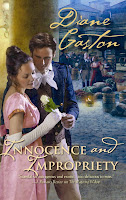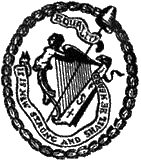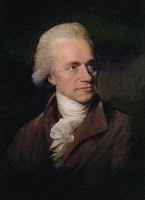 Growing up, I always loved St. Patrick’s Day with its celebration of all things Irish. To me, the Irish people were plucky, brave and proud–survivors of terrible adversity. I lapped up tales of the potato famines, of how the Irish emigrated to America, and of how they battled discrimination when they landed. I cheered the triumph of Irish Americans in our society. Countrywide celebration of St. Patrick’s Day is evidence of a hard battle won.
Growing up, I always loved St. Patrick’s Day with its celebration of all things Irish. To me, the Irish people were plucky, brave and proud–survivors of terrible adversity. I lapped up tales of the potato famines, of how the Irish emigrated to America, and of how they battled discrimination when they landed. I cheered the triumph of Irish Americans in our society. Countrywide celebration of St. Patrick’s Day is evidence of a hard battle won.
 I was, therefore, very proud of my Irish heritage. Whenever I heard my mother’s maiden name spoken, I could envision the rich, green countryside of our ancestral home.
I was, therefore, very proud of my Irish heritage. Whenever I heard my mother’s maiden name spoken, I could envision the rich, green countryside of our ancestral home.
I was well into adulthood when I happened to ask my mother and aunt, “During which potato famine did our ancestors flee Ireland?”
 Their response:
Their response:
“Ireland?”
Long pause.
“Well, I suppose we might have an Irish relative somewhere but we came from Alsace-Lorraine.”
I was devastated.
Not only was I not Irish, but I had concocted a history for myself that was totally false. How could I do that?
I was writing fiction even before I knew it!
 Nonetheless, what I love about the Irish and Ireland I still love about them, even if the connection is only in my heart. I like to hint at the attitude about the Irish during the Regency. There was a lot simmering under the surface.
Nonetheless, what I love about the Irish and Ireland I still love about them, even if the connection is only in my heart. I like to hint at the attitude about the Irish during the Regency. There was a lot simmering under the surface.
I tried to show a little of this in Innocence & Impropriety My hero and heroine of that book are Irish.
Many important figures in English history around the Regency time period have Irish roots. Castlereagh and Wellington, for example, were descended from Irish landowners, although they were anglicized protestants, more English than Irish, you might say. There were also several Irish literary figures within a hundred years or so of the Regency, also anglicized protestants. Jonathan Swift, Oliver Goldsmith, Bram Stoker, W. B. Yeats, Oscar Wilde, to name a few.
 It will be exciting to read Amanda’s Grand Central books set in the time of the Irish rebellion, even if we do have to wait until 2010. In the meantime, we can get our fill of Irish Medievals from Michelle Willingham.
It will be exciting to read Amanda’s Grand Central books set in the time of the Irish rebellion, even if we do have to wait until 2010. In the meantime, we can get our fill of Irish Medievals from Michelle Willingham.
By the way, go to Harlequin and click on the clover. You can purchase Michelle’s Her Warrior King for 40% off.
Can you think of any other Irish Historical romances that we should put on our TBR piles?
And who out there is Irish today?
I am!!!
















